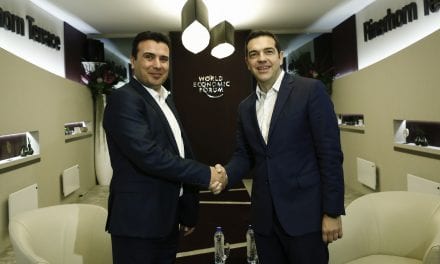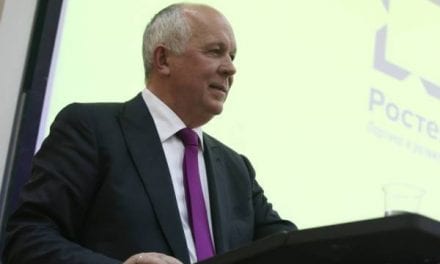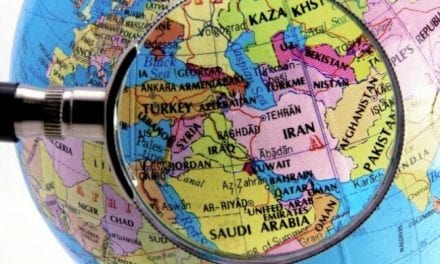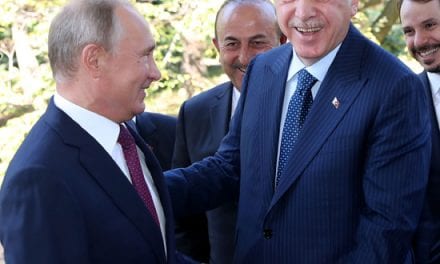By Nicole Gaouette and Benjamin Harvey
The U.S. and allies meeting to discuss Libya have recognized the Transitional National Council as the sole legitimate governing authority in the country, a step that allows for greater funding of the group whose forces are fighting to oust Muammar Qaddafi.
“Until an interim authority is in place, the United States will recognize the TNC as the legitimate governing authority for Libya, and we will deal with it on that basis,” U.S. Secretary of State Hillary Clinton said today in Istanbul, where the allies from the Libya Contact Group held their fourth meeting. The U.S. views Qaddafi’s regime as illegitimate, she said.
The contact group laid out conditions for a “genuine cease-fire” in a final statement and declared that “Qaddafi and certain of his family members must go.” The way he will leave power has yet to be defined, the group said. The conditions call for the complete withdrawal of Qaddafi-led forces to their bases, the release of detainees and hostages, the provision of water and electricity to all regions, and the opening of all borders for the quick return of refugees.
The North Atlantic Treaty Organization started airstrikes in late March to aid rebels seeking Qaddafi’s ouster. Qaddafi has already lasted longer than allies had anticipated, though his hold on the capital, Tripoli, appears to be weakening amid shortages of food and fuel and reports that his government is seeking a political solution to end the fighting.
Fill the Vacuum
The allies met to determine how to ensure those opposed to Qaddafi are able to fill the vacuum left after the Libyan leader’s expected departure.
“The United States is impressed by the work the TNC has done laying the groundwork for a democratic Libya,” Clinton said. “The assurances the TNC offered today reinforced our confidence that it is the appropriate interlocutor” until an interim government can be formed, the top U.S. diplomat said.
The military campaign against Qaddafi will continue “indefinitely” until he steps down, U.K. Foreign Secretary William Hague told reporters earlier today in Istanbul.
United Nations Secretary-General Ban Ki-moon will be the only person entitled to negotiate with both sides in Libya, Italian Foreign Minister Franco Frattini told reporters. Ban will set up a board of two to three interlocutors from Tripoli and the rebel-held town of Benghazi, he said.
Frozen Assets
Recognition of the council “will allow some countries to unfreeze some money,” French Foreign Minister Alain Juppe said. Libyan frozen assets in France total $250 million, he said.
The move allows the Obama administration to access some of the $30 billion in frozen Libyan assets that the U.S. holds, a State Department official said today. The mechanics of how they will be able to do that still has to be worked out. UN sanctions against Libya remain in place, potentially complicating efforts to get money to the rebels and the contact group will work on that issue, the official said.
The State Department official said a number of actions by the rebels convinced the U.S. to offer recognition, including a commitment to pursue a reform process, and to seek more inclusive representation of Libyans, politically, geographically and tribally. The U.S. will continue to watch closely how they perform, the official said.
When Clinton announced U.S. recognition of the council, the room broke into applause. Part of the U.S. motivation was also in sending a clear signal to Qaddafi that the U.S. and allies in the contact group are looking to a future beyond him.
U.K. Warplanes
The group continues to believe time is on its side in the struggle for control of the oil-rich country, said two U.S. State Department officials who spoke anonymously before today’s meeting because they aren’t authorized to discuss the matter publicly.
Britain will add four Tornado warplanes to its force in the air campaign against Qaddafi’s military, bringing the total number of British aircraft involved to 34, a spokesman for the U.K. Foreign Ministry said at the meeting.
Italy will open a credit line to rebels using frozen assets as collateral, and will provide them with 100 million euros ($141 million) today, Frattini said. Another 300 million euros will be released in two weeks and in total, Italy will release 400 million euros, he said, describing the money as loans.
There is an “urgent need for cash,” Turkish Foreign Minister Ahmet Davutoglu said, calling on countries to “open banks” to the rebels’ council, “along with a percentage of frozen assets.”
The U.S. has yet to deliver aid to the rebel council. The U.S. House of Representatives rejected a plan to funnel frozen Libyan assets to the group. Hague said the U.K. won’t be making any financial contributions today.



















